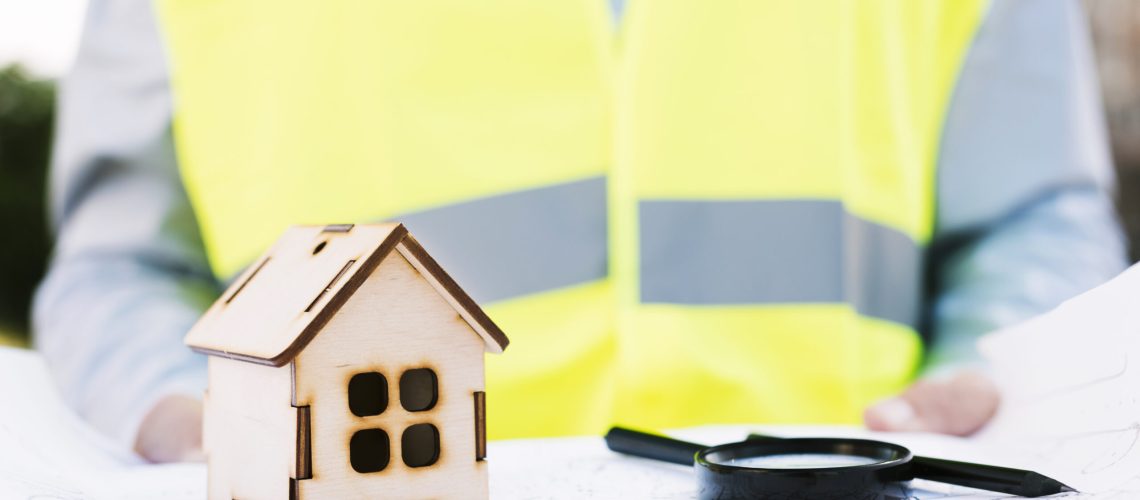7 Red Flags to look out for During a Property Inspection
When buying a home, paying attention to certain warning signs during the property inspection is vital. These red flags can include mould, old wiring, plumbing problems, pests, roof damage, foundation cracks, and even radon. Spotting these issues early can save you from costly repairs and ensure you make a wise investment. It’s also an excellent time to think about the option of cash home buyers, especially if you want to sell your current home quickly and hassle-free. This article will dive into each red flag, explaining what to look out for and why it matters, setting you up for a successful property inspection.
Red Flags to Watch
These are the red flags to watch when buying any property.
Structural Issues
Structural integrity is paramount for the longevity and safety of any property. It acts as the skeleton of the building, ensuring that everything else holds up correctly. When inspecting a property, visible cracks in the foundation, misaligned doors, and uneven flooring are red flags signalling potential structural problems.
These issues can stem from various causes, such as soil settlement, inadequate construction, or environmental factors. Addressing these problems is essential for aesthetic reasons and, more importantly, for the safety of the occupants. Neglecting such issues can lead to severe consequences, including the risk of collapse, making timely identification and repair critical.
Roof Damage
Roof damage is a significant concern for homeowners as it directly impacts the property’s ability to protect against weather elements. A damaged roof can lead to water infiltration, causing internal damage to ceilings, walls, and even the foundation. Key indicators of roof problems include missing, broken, or aged shingles, signs of water leaks, and sagging rooflines.
Roof related problems can compromise the property’s structural integrity and lead to costly repairs or replacements. Regular inspections can help identify these problems early on, preventing minor issues from escalating into major damages that can affect the entire property.
Plumbing Problems
Plumbing problems in a property can range from the inconvenient to the disastrous. Minor issues like leaky faucets or slow drains might seem negligible but can indicate larger systemic problems within the plumbing network. Primary concerns include outdated plumbing systems, persistent low water pressure, and signs of water damage such as stains or mould.
These can point towards significant leaks, blockages, or even sewer system failures. Plumbing issues cause water waste and increased utility bills and can lead to extensive property damage if left unaddressed. Identifying and fixing these problems early is crucial to prevent disruptions and avoid the high costs associated with major plumbing overhauls.
Mould Infestation
Mould is more than just an unsightly issue; it’s a health hazard and a sign of deeper moisture problems within a property. Mould thrives in damp environments, often stemming from leaks, poor ventilation, or unresolved water damage. During a property inspection, look for visible mould growth, a musty smell, or areas with chronic dampness, such as basements and bathrooms.
Mould can cause respiratory issues and allergic reactions, making it particularly concerning for inhabitants. Beyond health risks, mould presence can indicate leaks or improper insulation, requiring extensive and costly remediation efforts to remove the mould and address the underlying moisture issues.
Electrical Wiring Issues
During property inspections, old or faulty electrical wiring is a significant safety hazard and a red flag. Outdated wiring systems, such as knob and tube wiring, lack the grounding and circuit protection needed to meet modern safety standards. Warning signs include frequent circuit breaker trips, flickering lights, and two-pronged outlets indicating old wiring.
Wrong wiring poses a high risk of electrical fires and can be expensive to upgrade. It’s crucial to assess the electrical system’s condition and compliance with current codes to ensure the safety and functionality of the property.
Sewer Issues
Sewer problems can occur in any home, regardless of age, often due to tree roots invading the pipes or blockages within the system. Indications of a sewer malfunction include pooled water in your garden, basement water damage, or uneven pathways.
Spotting these signs early is crucial, as addressing sewer line issues promptly can prevent costly repairs, which might reach up to $10,000. Conducting a sewer inspection to diagnose and resolve the problem accurately is advisable.
Pest Infestations
Signs of pest infestations, such as rodents, termites, or other insects, can indicate significant problems in a property. Pests not only pose health risks but can also cause extensive damage to the structure of a home.
Evidence of infestations includes visible droppings, damage to wood structures, nests, and even sounds within walls. Termites, in particular, can compromise the structural integrity of wooden elements, leading to costly repairs. Identifying and addressing pest issues early is essential to prevent further damage and ensure a safe living environment.
Get peace of mind with a home inspection from Experts
Securing a home inspection from seasoned professionals offers unparalleled peace of mind for both current homeowners and prospective buyers. Understanding the condition of a property, from its foundation to the roof, can save you from unforeseen expenses and ensure a safe living environment. Here’s why enlisting expert inspectors is a wise decision:
- Thorough Evaluation: Expert inspectors conduct comprehensive assessments, covering every nook and cranny of the property. They scrutinise structural integrity, electrical systems, plumbing, HVAC, and more, ensuring everything is up to standard.
- Identifying Hidden Issues: Many problems within a home are not visible to the untrained eye. Experts can uncover hidden defects like pest infestations, mold, and structural damage that could lead to costly repairs if left undetected.
- Expert Recommendations: Following the inspection, you’ll receive detailed feedback and professional advice on addressing any issues. This guidance is invaluable for maintaining your home’s condition and can help plan future renovations or repairs.
- Increased Negotiating Power: A detailed inspection report can be a powerful negotiation tool for homebuyers. Identifying issues beforehand allows you to discuss repairs or adjust the purchase price accordingly with the seller.
- Long-Term Savings: Investing in a home inspection can lead to significant long-term savings. Identifying and addressing problems early prevents you from escalating minor issues into major, costly repairs.
Safety: Above all, an expert home inspection ensures the safety of your living space. Inspectors check for hazardous conditions like gas leaks, carbon monoxide presence, and fire hazards, ensuring your home is safe for occupancy.


